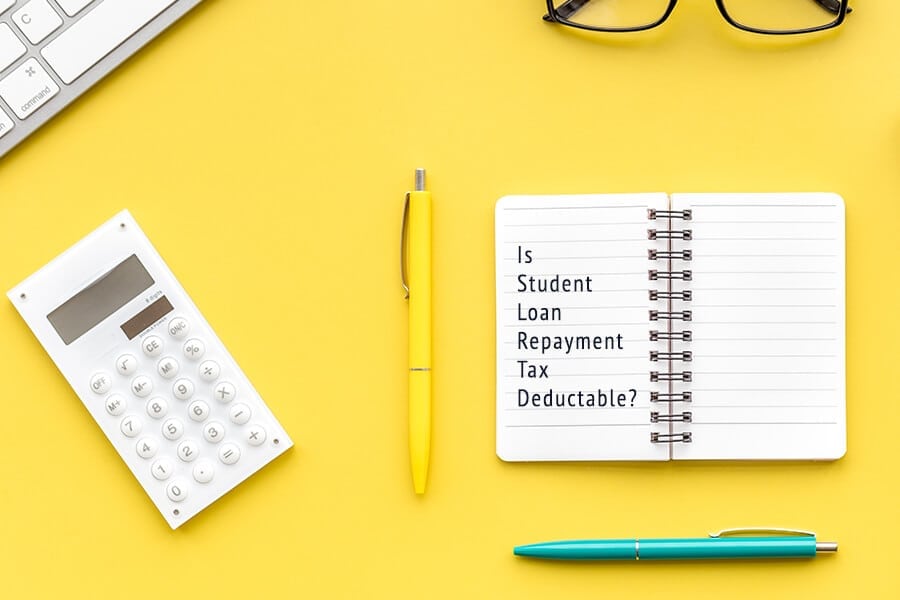Is student loan repayment tax deductible?
Whether this is the first time you’ve asked that question or not, it is beneficial to know the details about such deductions.
Borrowers can even get a special student loan tax credit if they fall within a certain income level.
Eligible borrowers can get as much as a $2,500 tax credit.
So read on to find out if you qualify for student loans tax credit.
Is Student Loan Repayment Tax-Deductible? Find Out How
1. Who qualifies?
The IRS gives a special deduction for interest on student loans.
To qualify, borrowers must have a Modified Adjusted Gross Income (MAGI) of less than $80,000 (or $160,000 for joint returns).
2. Qualified student loans
Not all types of student loan repayments qualify for tax deductions.
The IRS said the loans eligible for tax deductions are those that were used to pay qualified education expenses.
Such include the following:
- Tuition and other fees
- Board and lodging
- Books, equipment, and supplies
- Other costs including transportation
3. Eligible educational institutions
You can ask your academic institution if their students are eligible for tax-deductible loan repayment.
In general, those who are qualified for tax-deductible loan repayment are students of:
- Colleges, universities, and vocational schools too
- Institute conducting an internship or residency program
- Other institutions participating in the Department of Education Federal Student Aid (FSA) program
- Educational institutions outside the U.S. participating in the FSA
4. Limitations of the current tax system
Tax deduction for #StudentLoan interest doesn’t give enough relief, especially in high-cost regions. My bill would expand it. #DownWithDebt pic.twitter.com/Qvaf0Vk3uG
— Rep. Eric Swalwell (@RepSwalwell) June 23, 2017
Tax deduction on student loan monthly payments goes as much as $2,500 every year.
However, Rep. Eric Swalwell filed a bill that would double tax deductions.
5. IRS online interview
You can take the IRS online interview to see if you are qualified for a tax deduction on your student loan repayment.
Note that this is an IRS tool for U.S. citizens or resident aliens.
6. How to claim the tax deduction
Borrowers report student loan interests on Form 1098-E.
Lenders provide this form when borrowers have paid at least $600 in interest on a qualified student loan for the year.
Claiming Tax Deductions For Married Couples | Facts
Married couples can file taxes either jointly or separately. Each has both advantages and disadvantages.
Compare the two options below.
1. Joint filing
The IRS encourages married couples to file joint tax returns.
Furthermore, married couples can save $625 in taxes in a 25% tax bracket if they take out the maximum student loan interest deduction of $2,500.
ADVANTAGES
- Higher standard deduction
- Larger income thresholds for some taxes and deductions
- American Opportunity Tax Credit (maximum annual credit of $2,500 per eligible student)
- Lifetime learning credit (up to $2,000 for eligible education expenses)
DISADVANTAGES
- Joint filing will reflect the incomes of both spouses
- Joint filing results in higher loan payments on income-driven repayment plans
(Did You Know? The IRS can seize your tax refund if you are running late on student loan payments. Go through this BEFORE filing your tax return this year and see How To STOP Late Payments From Taking Your Tax Refund. Click here to learn more and get the free guide.)
2. Separate filing
Married couples can also file tax returns separately where each spouse will be taxed separately for his or her income.
ADVANTAGES
- Ideal for married couples with income-based student loan repayment plans
- Student loan monthly fees will be based on their individual incomes, not their joint incomes
DISADVANTAGES
- Separate filing of tax returns implies a higher tax rate
- Separate filers also lose certain deductions and credits
Student loan payments can be tax deductible based on certain conditions.
Although, it can still be one of your student loan payback options.
So review your financial situation to see if such deductions will be helpful to you.
Will student loan tax deductions be a good financial move for you? Share your thoughts in the comments below!
Up Next: Standard Repayment Plan



Leave a Reply